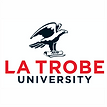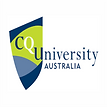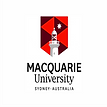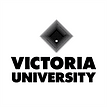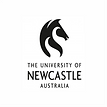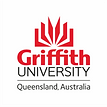

Study in Australia
Application Process, College, Courses, and Universities
Top Universities, high-quality lifestyle, and work opportunities make Australia one of the best destinations for higher education. Every year tens of thousands of international students from all around the world travel to this amazing country to study in its world-class institutions and gain work experience. Australia is a popular study destination among Indian students too. In fact, India is the second most significant source from which international students go to Australia. As per Australian government statistics, in December 2019, there were around 758,154 international students in Australia, out of which 15% were Indians. The country down under has over 1100 educational institutes, and collectively they offer thousands of courses. In addition to superior education, they also provide excellent international student support services. Because of this, Australian institutions consistently rank among the best in the world university rankings.
Why Study in Australia?
Reasons to study in Australia
Studying in Australia brings you an opportunity to pursue an outstanding education. Australian universities’ research and development efforts have led to discoveries that have benefited millions worldwide. Here are some of the reasons why so many international students prefer to study in Australia.

Top study destination
Australia is one of the most preferred study destinations. Over 7,58,000 international students studied in Australia in 2019. World university ranking agencies like QS and THE consistently place Australian universities on their top universities list.

Globally recognized qualifications
Australia is one of the most preferred study destinations. Over 7,58,000 international students studied in Australia in 2019. World university ranking agencies like QS and THE consistently place Australian universities on their top universities list.

Immense research opportunities
Australian researchers and academia have contributed immensely to the world. Penicillin, Ultrasound, Black box flight recorder, and revelation of the accelerating universe are some Australian discoveries that changed the world.

Scholarships
Australian institutes award over 3,000 scholarships, grants, and bursaries to international students every year. Recently, the Australian Government has contributed over AU$300 in scholarships for international students.

Quality living and Safety
Australia is one of the safest countries. Some of its cities have the lowest crime rate in the world. Cities like Melbourne, Sydney, Brisbane, Canberra, Adelaide, Perth, and Gold Coast are considered best for International students.

Work while studying
you can work while completing your degree in Australia. The Australian Government allows international students to work for 40 hours every two weeks, and it does not discriminate between foreign and local students. In Australia, international students have the same rights as everyone else has in Australia.

Post-graduation work opportunities
Australia is a perfect place to gain international work experience for international students. Many Australian education institutions assist their international students in connecting to potential employers. If you have an Australian degree and skills, it is not difficult to find the job you want through employment hubs, job boards, and career fairs organized regularly by its states and territories.
Requirements to Study in Australia
Eligibility Criteria
To study in Australia, you need an Australian study visa whose type may vary depending on your age, type of study, or duration of your course. Most probably, you will require a student (subclass 500) visa. To obtain the study visa, you must meet the visa requirements, including receiving an offer letter from an Australian institution. The admission process may differ depending on the institution’s rules and regulations. More or less, you will need the following documents to complete the process.

English Language requirement:
Proof of an English Language Test is mandatory for foreign Students almost in all Australian Institutes. Students should check carefully on the institution's website for any English Language requirements.

Academic requirements:
The academic documents required to study in Australia may vary depending on the student's education level. The following are the necessary documents to study in Australia.
Marksheet of 10+2
Marksheet of Graduation (if applicable)
Passport size photographs
Academic documents of recent qualification
College fee receipt (recommended)
Scholarship letter (if any)
Any relevant correspondence with the institution
Language Proficiency Certificate (IELTS, PTE, TOEFL)
Students can also take a foundation course to meet academic requirements.

Visa requirements
Key requirements for an Australian Study Visa are:
Proof of an electronic Confirmation of Enrolment (eCoE)
Acceptable Overseas Student Health Cover (OSHC)
Academic and Work experience documents.
Sufficient fund proof
A valid passport

Overseas Student Health Cover
OSHC is a health cover for international students. It helps you cover doctor visits, some hospital treatment, medicine, and ambulance expenditures.

How to Apply for Australian Study Visa
Eligibility Criteria
International Students have to apply for a study permit to study in Germany, and for getting a study permit, few visa requirements have to be fulfilled. Though Specific campuses have their own specific needs. In case a student seeks to study in Germany, basic requirements are:
- Valid passport
- Four passport size photographs
- Language proficiency test either in either English or German
- Payment proof of study fees
- Academic Certificates
- Letter of acceptance of school in Germany
- payslips and employment contract (if applicable
- Bank statement with sufficient funds
- Health insurance
- Marriage certificate (if applicable)
- Birth certificate
Work while Study in Australia
Earn while Studying
As an international student, you can choose to work while studying. Most Indian students in Australia work during their study program. This not only helps them earn money, but it also gives them valuable job experience. The Australian Government gives you as much protection at work as anyone else working in Australia. As an international student, you can work up to 40 hours every two weeks while studying. Also, during the holiday you can work full time in Australia.
Here is a list of industries recommended by the Australian Government to international students

Intakes in Australia for February, July & November
Australia is a top choice destination for international students, known for its high-quality education, multicultural environment, and stunning landscapes. For those aspiring to study in Australia, understanding the various intake periods, eligibility criteria, and the advantages of pursuing higher education in Australia is crucial. This article will guide you through the upcoming intakes for 2025-2026, the advantages of studying in Australia, and the eligibility criteria for undergraduate and postgraduate programs.
Understanding the Australian Education System
Australia’s education system is divided into three main levels:
- Undergraduate programs: Typically last for 3-4 years, culminating in a bachelor’s degree.
- Postgraduate programs: Include master’s degrees (1-2 years) and doctoral programs (3-4 years).
- Vocational courses: Short-term courses aimed at providing specialized skills.
International students can choose from a wide variety of disciplines, ranging from science and technology to arts and humanities, engineering, business, and health sciences.
Upcoming Intakes in Australia for 2025-2026
Australia has several intake periods during which universities and institutions accept applications from both domestic and international students. The main intakes for 2025-2026 are as follows:
a) February Intake (Semester 1)
- Application Deadline: Applications usually close in October-November of the previous year (2025 for the 2026 intake).
- Course Commencement: Early February to March.
- Popular Programs: Most undergraduate and postgraduate courses are offered in this intake, making it the most significant and competitive intake period.
- Advantages: This is the primary intake and offers the widest selection of courses and seats. Many universities have scholarship programs that coincide with this intake.
b) July Intake (Semester 2)
- Application Deadline: Applications typically close by May or June.
- Course Commencement: Early July to late August.
- Popular Programs: While fewer courses are offered compared to the February intake, it remains a significant period for students who missed the February deadline.
- Advantages: Smaller class sizes and better student-to-teacher ratios. This intake allows students to start later in the year, which can be advantageous for those finalizing their preparations or awaiting financial aid decisions.
c) November Intake (Summer School)
- Application Deadline: Applications close by September or October.
- Course Commencement: Late November to early December.
- Popular Programs: Often focused on vocational courses, short-term programs, and specific postgraduate courses.
- Advantages: Great for students looking to fast-track their studies or take additional courses during the summer break.
Advantages of Studying in Australia
1) Globally Recognized Education:
Australian universities are known for their academic excellence and research output. According to the QS World University Rankings, many Australian universities, such as the University of Melbourne, Australian National University (ANU), and the University of Sydney, consistently rank among the top 100 universities globally.
Degrees from Australian universities are recognized worldwide, providing graduates with a competitive edge in the global job market.
2) Cultural Diversity and Inclusivity
Australia is a diverse country with a large number of international students, creating a multicultural environment. This diversity promotes inclusivity and gives students the chance to experience and learn from different cultures, which is valuable for both personal growth and career development.
3) Post-Study Work Opportunities
Australia offers a post-study work visa (Temporary Graduate Visa, subclass 485) that allows international students to stay in Australia after completing their studies. This visa grants up to 4 years of work rights, depending on the level of qualification and the region where the studies were undertaken.
4) High Quality of Life
Australia is renowned for its high standard of living, offering students a balance between urban sophistication and natural beauty. Cities like Sydney, Melbourne, Brisbane, and Perth are known for their excellent public transport, healthcare, and overall safety, making them ideal places to live and study.
5) Scholarships and Financial Aid
Many Australian universities offer scholarships specifically for international students. These scholarships can range from partial to full tuition fee waivers, providing significant financial relief. The Australian government also supports international students through various scholarship programs, such as the Australia Awards, etc.
6) Research Opportunities and Innovation
Australia is a leader in research and innovation, particularly in fields such as medicine, environmental science, and engineering. International students have the opportunity to work with some of the world’s top researchers and access cutting-edge facilities, enhancing both their academic and career prospects.
Eligibility Criteria for Upcoming Intakes in Australia 2025 to 2026
1) Academic Requirements for Undergraduate Degree
To apply for undergraduate programs in Australia, international students should have completed the equivalent of Australian year 12 education, such as a high school diploma or secondary education certificate. Also the minimum grades typically work around 65% or higher depending on the course and institution.
2) Academic Requirements for Postgraduate Degree
- Undergraduate Degree: Applicants must hold a recognized undergraduate degree. In most cases, this should be in a related field to the postgraduate course.
- GPA Requirements: For admission into competitive programs, a minimum GPA of 2.5-3.0 on a 4.0 scale is typically required.
- Work Experience: For certain postgraduate courses, such as MBA programs, professional work experience (2-5 years) is a key requirement.
3) English Language Proficiency
Similar to undergraduate programs, postgraduate students must meet English language requirements through tests like:
- IELTS: An overall score of 6.5-7.0, with no individual band lower than 6.0.
- TOEFL: A minimum score of 79-90.
- PTE Academic: A minimum score of 58-65.
4) Research Proposals (for Research-Based Programs)
For research-based master’s and Ph.D. programs, students are required to submit a research proposal outlining their intended area of study, research objectives, and methodology. Some universities may also require an interview with prospective supervisors.
4) Statement of Purpose (SOP) and Letters of Recommendation
A well-written SOP explaining the student’s academic background, career goals, and reasons for pursuing the course is often required. Letters of recommendation from professors or professional supervisors may also be necessary for postgraduate applications.
Why Choose Global Opportunities?
Global Opportunities Pvt. Ltd. is India’s leading study abroad consultant, specializing in student recruitment for over 700 partner institutions worldwide. Our expert team offers personalized guidance to help you navigate the application process, from choosing the right program in Australia to securing your Australian Student Visa (Subclass 500), ensuring a smooth and successful transition to your new educational journey.
Conclusion
In conclusion, the upcoming intakes in Australia for 2025 -2026 offers fantastic opportunities for international students to experience top ranking universities, quality education and research. Australia has multiple intake periods like February, July and November, which provide students with flexible options to start their studies at a time that suits them the best. International students who study in Australian universities gain entrance to globally recognized degrees, excellent post study work opportunities and high quality of life making it an attractive option for both undergraduate and postgraduate students.
However, to make the most of opportunities, it is very much essential to understand the eligibility criteria, meet the application deadlines and ensure that student’s visa and financial requirements are in order. With the right counseling & planning, studying in Australia in 2025 – 2026 can be a life changing experience that opens doors to personal growth and international career success.
Associate with
